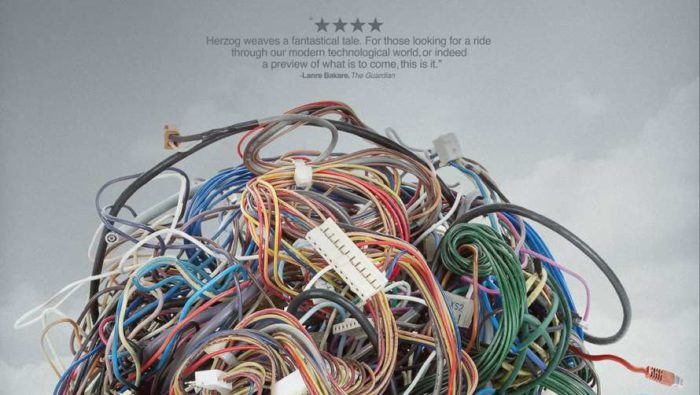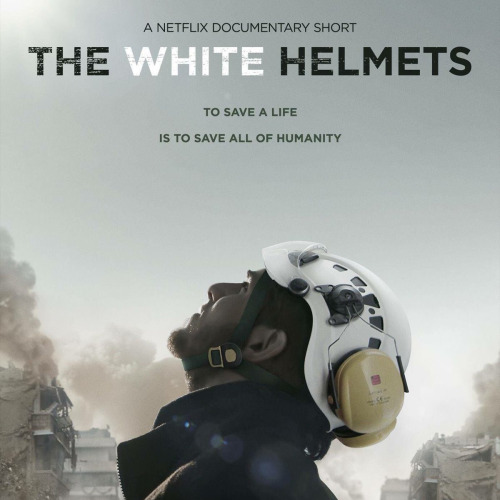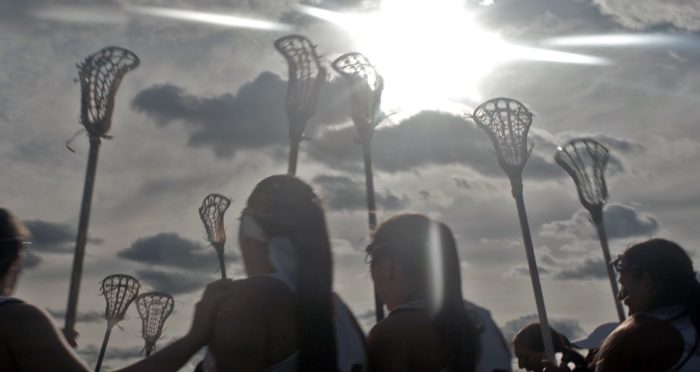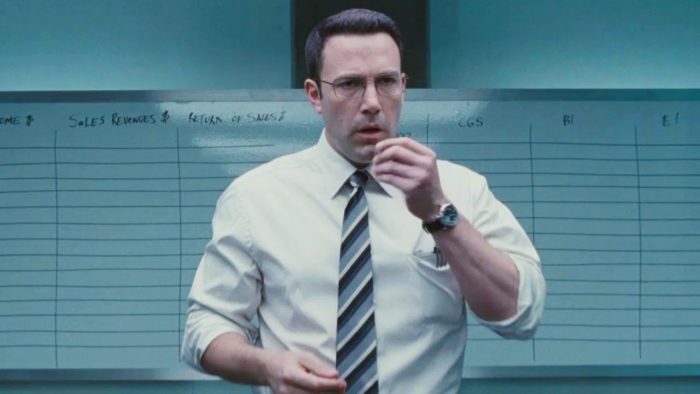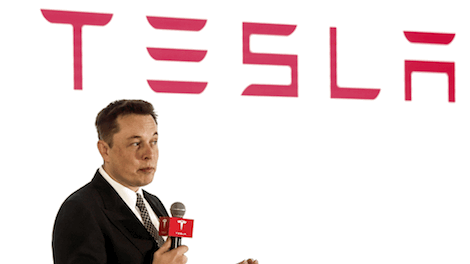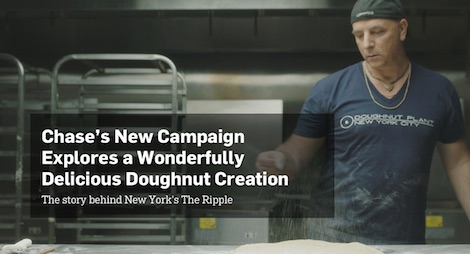
Instagram foodies may be familiar with a doughnut called The Ripple, available at the New York-based store Doughnut Plant. It’s a doughnut, within a doughnut, within a doughnut created by the store’s founder, Mark Isreal.
What people may not know about the doughnut is Isreal brought the creation to life mainly thanks to points he collected through Chase.
A new campaign from Chase for Business, by Droga5, aims to highlight how the small business owner was able to use his points, collected through purchases made using Chase’s Ink business preferred card, to bring his latest creation to life.
“You have to keep innovating,” Isreal says in the ad. “I wanted to make this new kind of doughnut, but creating something new is expensive.”
Using some 80,000 points, Isreal was able to fund his latest innovation—The Ripple—and buy everything he needed to make the donuts including flour, milk and butter. The Chase card also allowed Isreal to design his own tools and equipment to make the new doughnut creations.
After its debut late last year, The Ripple doughnut quickly became one of the most popular desserts for New Yorkers and visitors to try out. Zagat even named Doughnut Plant’s creation as one of the 25 essential dishes to try in New York.
Continue reading article on Adweek.


